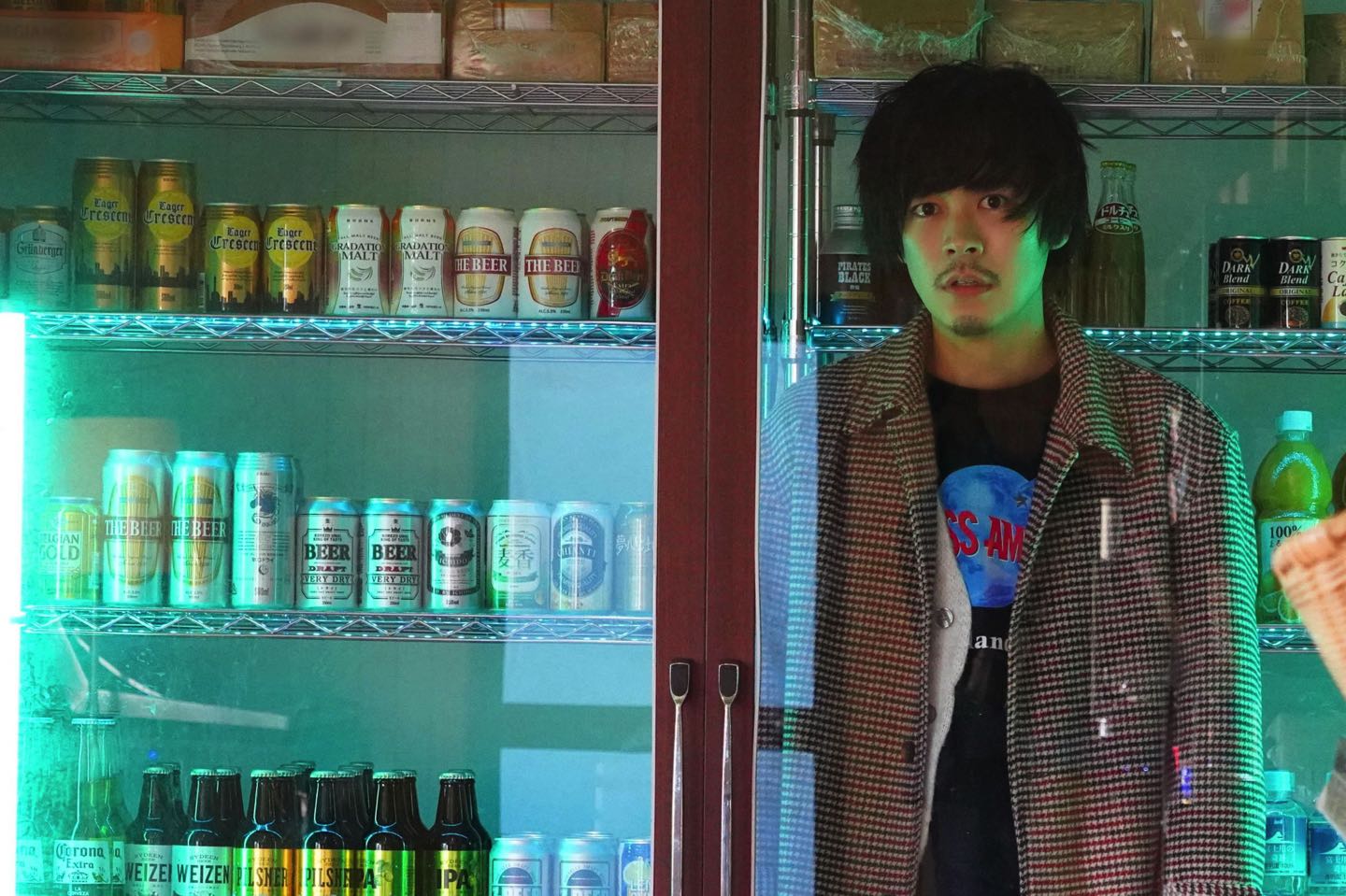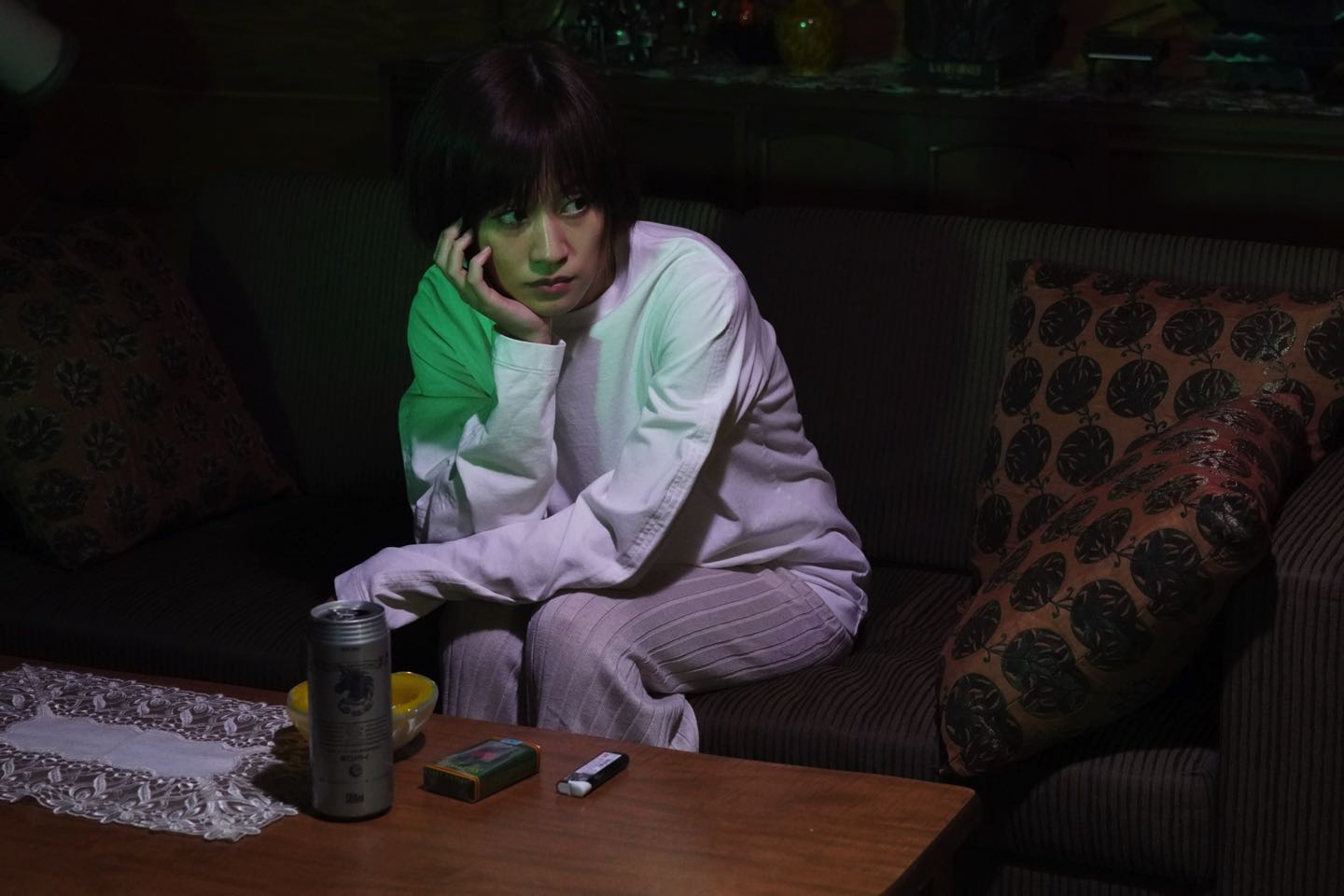by Brian Hioe
語言:
English
Photo courtesy of Free Stone Productions Co. Ltd.
This is a No Man is an Island film review written in collaboration with Cinema Escapist as part of coverage of the 2023 International Film Festival Rotterdam. Keep an eye out for more!
CONVENIENCE STORY, the latest film from Satoshi Miki, proves a surreal and humorous–not to mention stylish–take on the creative process. The result is something like Sunset Boulevard set in a sequence of Japanese convenience stores, perhaps with a touch of Enter the Void or similar psychedelic fare, or even maybe The Shining.
The movie follows struggling Tokyo-based scriptwriter Kato, who faces writer’s block but still grudgingly churns out scripts to make ends meet. In the meantime, his relationship with his girlfriend, newbie actress Zigzag, has increasingly become a process of going through the motions.

Photo courtesy of Free Stone Productions Co. Ltd.
What sets off the movie’s events, then, is Kato surviving a car crash in a convenience store after a vision of a mysterious figure hiding in the refrigerator. Subsequently, he decides to abandon Zigzag’s pet dog Cerberus in the countryside, but becomes stranded there when his car fails to start.
A woman and her husband that run another convenience store nearby come to his aid, allowing him to stay the night. However, the woman–who resembles the clerk he saw in the convenience store prior to the car crash–seems intent on conducting an affair with Kato. The husband proves an utterly bizarre figure, prone to practicing conducting in farm fields with a series of generator-powered speakers that he sets up to emulate a human orchestra. Kato proves something of an everyman in the course of this–he is not exactly a tortured creative, but rather a regular everyday person thrust into a series of odd events.
In the meantime, back in Tokyo, Zigzag’s acting career has taken off meteorically, as she is cast in a series of increasingly surreal roles. As Zigzag wonders where her partner and dog have gone, she eventually dispatches two strange gun-toting men in search of them.
Convenience Story also riffs off of genre conventions. The struggling writer character archetype is one, and the theme of experiencing strange events while being stranded in the countryside is another. But what keeps the movie fresh and engaging is how well-thought-out its surrealism is.
Each and every scene oozes cinematic style, without relying on fancy camerawork or atmospheric shots of beautiful natural landscapes.
The film’s strong style especially comes through with strong acting from each and every member of the cast. In particular, as Kato contemplates an affair with the woman he meets, the film exudes the underlying sexual dynamics between many of its characters–even incidental ones–in a way that bespeaks not only the skill of the actors, but also the director ’s ability to bring the film’s overall concept alive.
If Convenience Story has a weakness, it probably is that Zigzag gradually falls out of the narrative as the film goes on, with her story taking a backseat to Kato’s. This occurs even if, earlier on, the movie establishes her as something of a deuteragonist to Kato, as her scenes gradually just become entertaining diversions to the main narrative featuring Kato. The film also does not sufficiently develop their dynamic–in fact, we only see Kato and Zigzag in the same room during the film’s first scene. To this extent, the movie’s ending is perhaps too reliant on the genre conventions it draws on, and is a bit unsatisfying in that way, even if it manages a creative spin on the use of Chekhov’s gun.

Photo courtesy of Free Stone Productions Co. Ltd.
For better or for worse, the movie manages to be philosophical without ever forcing the issue, or presenting philosophical musings directly. But it is ultimately not very clear whether the film is primarily a comment on the creative process–for instance on how the act of fantasizing in otherwise mundane contemporary settings, like convenience stores, is at the heart of artistic creation. In this regard, the movie might aspire to broader social commentary, but this is lost in its dream-like episodes.
Either way, Convenience Story is a satisfying and enjoyable watch. The philosophical questions it asks might not exactly keep viewers awake at night, but it still proves an intriguing and stylish commentary on the nature of fiction, and the creative process, in the midst of capitalist ennui.



